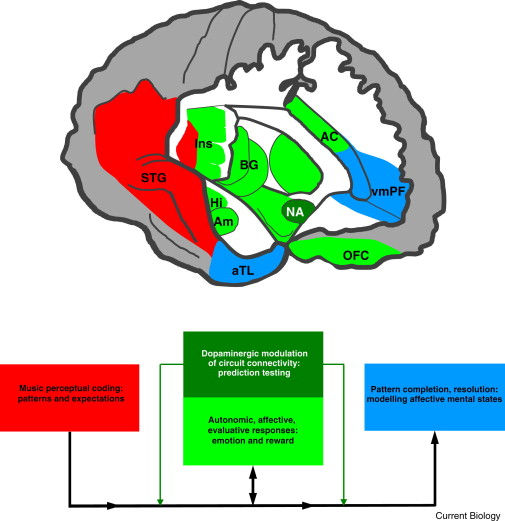Biology Of Music
- SABEST VIT 2021

- Aug 19, 2021
- 3 min read
- Johann Laji
Music: Evolutionary Masterpiece or its side note
Music is one of those simple pleasures of life. Rarely ever does it take center stage but once you immerse yourself into it again, you wonder why you haven’t appreciated it the way it has deserved. To the biologist, naturally it begs the question: ‘why?’. Nothing is ever black or white to a them. They look at something and wonder; why did evolution take this path. What survival advantage does it offer us as a species. Today, we look at the pleasure of music from a biologist’s point of view.
Bio-musicology is the official name given to the study relating the two, biology and music. Yet, there is still a cloud surrounding whether music actually has a biological aspect or not. As music leaves behind no fossils or traces, it can be difficult to dissect, keeping in mind that music in itself does not have a fixed definition.
It can be argued: Would there be any change if music was removed from our life. Perhaps, like fire, it was created by man and not a product of evolution. Yet, in the song of the birds, and the howl of the wolves, there seems to be some connection that suggest a deeper meaning. In songbirds for example, the male with the stronger song generally wins over the female. This suggests a sort of sexual selection, an important factor in the propagation of a species. However, in these species, the melodious tunes seem to be a way of communication. In a sense, it is their language. But this is definitely not the way it has panned out in human beings.
There is research to suggest that a career’s music like vocalizations while responsible for an infant induces memories of warmth and love and hence strengthens the parent-child bond. Music is a sensory stimulus that activates certain reward center's in the brain. Hence, music could be a side product of evolution that has come into existence to improve the quality of life. If you think about it, inventions that improve the quality of life is something that separates us from the other species.

A neural architecture for encoding the biological value of music.
Moreover, humans have evolved as a social species, where community bonds have for long been our strength against more physically imposing natural predators. It makes sense then, that music may have developed as a social construct that keeps unites members from within a community. This can be seen in the fact that nearly all cultures have unique tastes and interpretations of music.
As in the case of the infant and career, music has deep connections with memories. Music that implies danger can tap into our primal fears and heighten our senses. Historically, religious songs and war cries have used this principle to evoke the desired emotion. Similarly, memories associated with happy memories activate evolutionary pathways that relax the nerves and an opportunity to let one’s guard down. Along the same lines, music can bring back distant memories, a principle widely used in treatment of dementia and Alzheimer’s.
Then, there is the argument for the Mozart effect. It centers around the idea that listening to certain kinds of music increases cognitive ability and intelligence. As the idea took off in the US, Newborns around the country were played Mozart in a bid to create geniuses like its namesake. However, as more research followed, a meta-analysis of sixteen different studies confirmed that listening to music does lead to a temporary improvement in the ability to manipulate shapes mentally, but the benefits are short-lived and it doesn’t make us more intelligent.
But why do we prefer some sounds over the other? What makes ‘music’ sound good. There is a more straightforward biological answer to this question. Pattern recognition and using it to solve puzzles has long stood out as something that separates humans from even their most closely related species. The uniform patterns created by music soundwaves provides a much easier task for the human brain to analyze and interpret.
For more, visit -



Comments